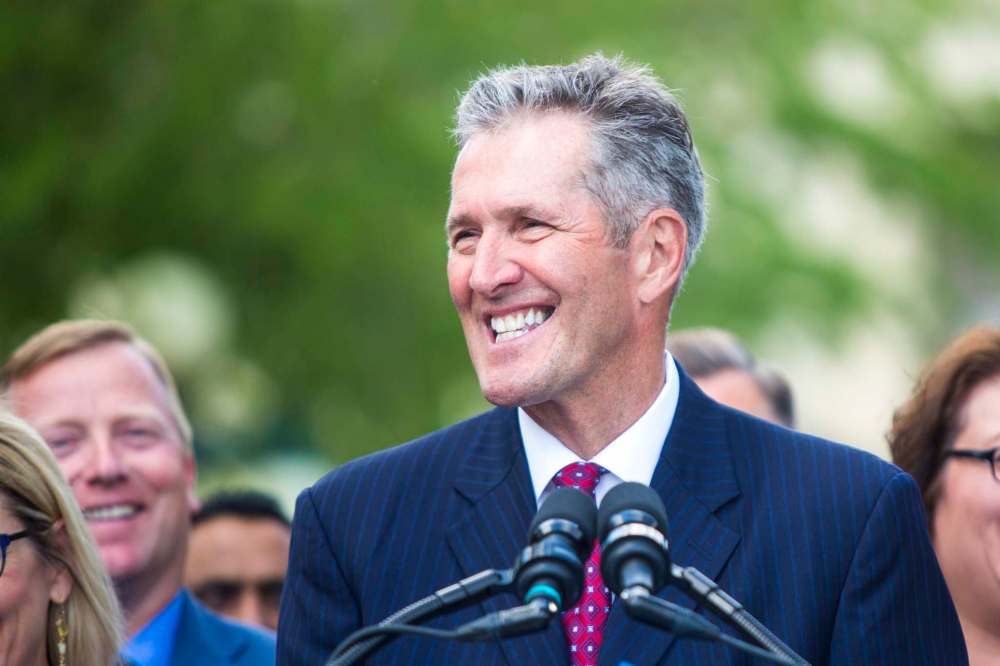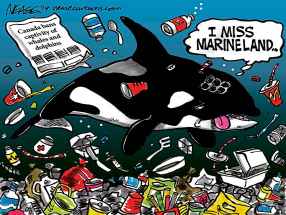Combative, boastful premier bets going to polls early a no-lose proposition
Read this article for free:
or
Already have an account? Log in here »
To continue reading, please subscribe:
Monthly Digital Subscription
$0 for the first 4 weeks*
- Enjoy unlimited reading on winnipegfreepress.com
- Read the E-Edition, our digital replica newspaper
- Access News Break, our award-winning app
- Play interactive puzzles
*No charge for 4 weeks then price increases to the regular rate of $19.00 plus GST every four weeks. Offer available to new and qualified returning subscribers only. Cancel any time.
Monthly Digital Subscription
$4.75/week*
- Enjoy unlimited reading on winnipegfreepress.com
- Read the E-Edition, our digital replica newspaper
- Access News Break, our award-winning app
- Play interactive puzzles
*Billed as $19 plus GST every four weeks. Cancel any time.
To continue reading, please subscribe:
Add Free Press access to your Brandon Sun subscription for only an additional
$1 for the first 4 weeks*
*Your next subscription payment will increase by $1.00 and you will be charged $16.99 plus GST for four weeks. After four weeks, your payment will increase to $23.99 plus GST every four weeks.
Read unlimited articles for free today:
or
Already have an account? Log in here »
Hey there, time traveller!
This article was published 19/06/2019 (2369 days ago), so information in it may no longer be current.
Say what you will about Premier Brian Pallister, but he is clearly a man with a high tolerance for risk.
The premier returned from a controversial trip to France in a combative mood, and quickly proceeded to confirm what was becoming one of the worst-kept secrets in the province: Manitobans will go to the polls on Sept. 10.
Pallister had tipped his hand about the date prior to departing for France, when he announced a voluntary, 90-day government communications blackout starting June 12, in keeping with the spirit of election financing laws.

Do the math — which involved the blackout period, the fact Manitoba elections must be on a Tuesday, and campaigns can last either four or five weeks — and you come up with Sept. 10.
Pallister’s decision to confirm the date is definitive proof he is not a man who spends a lot of time cowering from challenges. He will hold an election — more than one year earlier than he is required under the fixed-date election law — despite having just gone through one of the roughest two weeks in his three years in power.
First, he got his knuckles rapped for skipping a D-Day ceremony at Juno Beach in France to meet with officials from an agri-business company building a pea processing plant near Portage la Prairie. Upon his return from Europe, he waded directly into a new firestorm surrounding government efforts to reconfigure Winnipeg hospitals.
The controversy started with a June 12 decision to turn patients away from the St. Boniface Hospital emergency room, which has seen a steady increase in volumes since the ER at Concordia Hospital was converted to an urgent care centre. The health-care file exploded when it was alleged a 63-year-old woman died the same day at St. B after waiting five hours for surgery.
These are the kind of seismic political events that would cause most politicians to abandon all thoughts of an early election and seek respite in the summer legislative recess. Pallister is clearly not most politicians.
In his comments Wednesday, Pallister displayed the same inflated, unflinching confidence that has been a hallmark of his first three years in power.
The premier claimed his government had accomplished “90 per cent” of all the things pledged in the 2016 election. He said attempts to reconfigure Winnipeg hospitals were not proof he could not manage health care, but rather evidence his government is “willing to tackle the difficult issues.” He asserted his team of MLAs and candidates is the “best slate… in the history of Manitoba.”
He could have couched all of those claims, but that isn’t his style. Over and over again, Pallister has shown a preference for outrageous claims that are just as impossible to prove as they are to disprove.
Like his often-repeated 2016 claim he would make Manitoba “the most-improved province in Canada.” This week, Pallister officially declared that mission accomplished.
He is relying on the fact it’s nearly impossible for anyone to disprove a nebulous claim such as “most improved.”
However, Manitoba has received nearly $600 million in equalization payment increases over the past two years. Equalization is a program that redistributes federal tax dollars based on the relative economic performance of each province. As a “have-not” province, Manitoba’s share of equalization has gone up because its economy has underperformed relative to other provinces. That is hardly evidence of “most improved.”
And yet, while Pallister is prone to exaggeration, there is method to his madness.

The premier understands election campaigns are not driven by data — they are exercises in mass marketing, where pamphlets, television and radio commercials and earned media rule the day. “Most improved” then becomes an effective campaign slogan, even if it is a flawed empirical claim.
Pallister is also fully aware, whatever criticism he must endure for calling an election early, his political opponents are simply not ready to fight.
Both the NDP and Liberals are showing signs they would have appreciated another 15 months to prepare.
Liberal Leader Dougald Lamont was forced to admit Wednesday his party has only nominated 12 candidates in the 57 ridings.
It is true finding candidates is difficult when no one knows for sure when the election is taking place. Still, the Grits have a gargantuan task ahead of them. Without candidates, you can’t do riding specific fundraising; without fundraising, you can’t mount a serious campaign.
The NDP are doing better, but not by much.
Party officials claim they have nominated about half of a full slate. They, too, have promised to have a candidate in every riding — even if it’s fair to assume some will be less than A-level.
Pallister is aware of the inherent weakness in his opponents. He understands how difficult it will be to challenge his hyperbolic claims on the campaign trail. In short, the premier is pretty sure an early election call is a no-lose proposition.
Perhaps Pallister will distract voters by offering them something new and bold that will make them forget all of the exaggerations. Like repealing a fixed-date election law that is clearly ineffective in curbing a premier’s political ambitions.
dan.lett@freepress.mb.ca

Born and raised in and around Toronto, Dan Lett came to Winnipeg in 1986, less than a year out of journalism school with a lifelong dream to be a newspaper reporter.
Our newsroom depends on a growing audience of readers to power our journalism. If you are not a paid reader, please consider becoming a subscriber.
Our newsroom depends on its audience of readers to power our journalism. Thank you for your support.
History
Updated on Wednesday, June 19, 2019 8:51 PM CDT: Fixes typo
Updated on Thursday, June 20, 2019 9:18 AM CDT: Corrects typo









